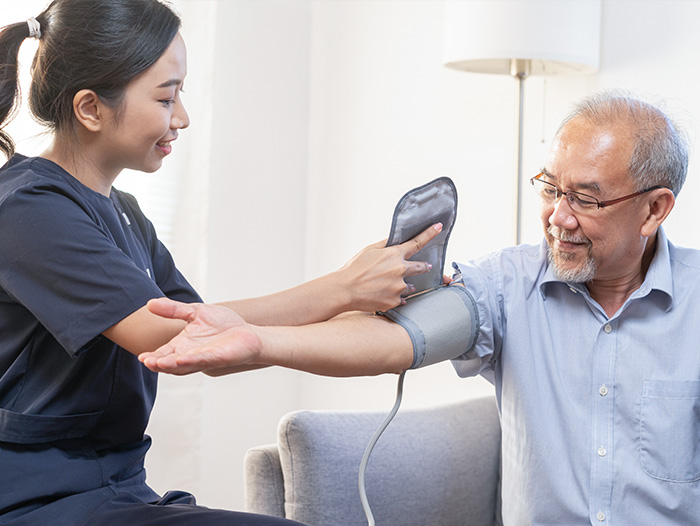Auto logout in seconds.
Continue LogoutEvery year in the fall, Americans "fall back" out of daylight saving time into standard time. Given the health impacts of changing the clocks, experts say daylight saving time should be abolished in favor of permanent standard time.
What daylight saving time can do to your health
The biannual time change was originally implemented as a way to save electricity during World War I, but the practice still continues, despite the fact that only a quarter of Americans want to keep the practice going, according to an AP/NORC survey from 2021.
On top of that, research has found increased rates of ED visits and an increased risk of atrial fibrillation, depression, and suicide following daylight saving time. The time change has also been associated with an increased risk of heart attack and stroke, according to multiple studies.
In 2020, an NIH study found that around 150,000 Americans experienced physical health issues as a result of daylight saving time changes, including strokes, heart attacks, mood changes, and accidents.
Seasonal Affective Disorder — a type of depression linked to chemical changes triggered by sleep changes and a lack of daylight — can also be affected by the time change.
"They notice how that one hour time change can impact health," said Christina Zhang, medical director at MiDoctor Health. "Tired, weakness, lack of energy, poor sleep."
"Sleep impacts how healthy you feel and how happy you feel because of its influence on those hormones and the shared areas," said Melissa Moore, assistant professor of clinical psychiatry at the Children's Hospital of Philadelphia's pulmonary medicine and sleep center.
According to Fred Turek, director of the Center for Sleep and Circadian Biology at Northwestern University, while a one-hour time change might not seem significant, our internal clocks can struggle to keep up. "[I]t turns out that the master clock in our brain is pretty hard-wired" to a consistent 24-hour cycle, he said. "The internal clock has to catch up, and it takes a day or two to adjust to the new time."
Why some experts are pushing for permanent standard time
Some lawmakers have pushed to make daylight saving time permanent, but experts say standard time is actually better for our health.
According to Karin Johnson, a professor of neurology and a sleep medicine specialist, daylight saving time doesn't actually "save" any daylight during the spring and summer — it just pushes sunrises and sunsets an hour later and further from our natural circadian rhythms.
Standard time, however, makes it so the sun is directly above us at noon, which is most aligned with our internal clocks. "Essentially, standard time is what keeps up sane, despite the short days of winter," Johnson said.
Johnson added that being on permanent standard time would especially be helpful for people waking up before 8:30am, as night owls, teenagers, and others with early work start times or who live on the western edge of time zones are the ones most negatively impacted by daylight saving time. (Mallenbaum, Axios, 11/2; Carlin, CBS News, 11/3)
Many Americans welcome the extra hour of sleep we get when we turn our clocks back in the fall — but the time change "can influence our health in unexpected ways," Allison Aubrey reports for NPR’s "Shots."
Don't miss out on the latest Advisory Board insights
Create your free account to access 1 resource, including the latest research and webinars.
Want access without creating an account?
You have 1 free members-only resource remaining this month.
1 free members-only resources remaining
1 free members-only resources remaining
You've reached your limit of free insights
Become a member to access all of Advisory Board's resources, events, and experts
Never miss out on the latest innovative health care content tailored to you.
Benefits include:
You've reached your limit of free insights
Become a member to access all of Advisory Board's resources, events, and experts
Never miss out on the latest innovative health care content tailored to you.
Benefits include:
This content is available through your Curated Research partnership with Advisory Board. Click on ‘view this resource’ to read the full piece
Email ask@advisory.com to learn more
Click on ‘Become a Member’ to learn about the benefits of a Full-Access partnership with Advisory Board
Never miss out on the latest innovative health care content tailored to you.
Benefits Include:
This is for members only. Learn more.
Click on ‘Become a Member’ to learn about the benefits of a Full-Access partnership with Advisory Board
Never miss out on the latest innovative health care content tailored to you.


